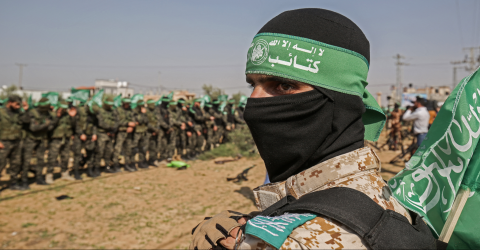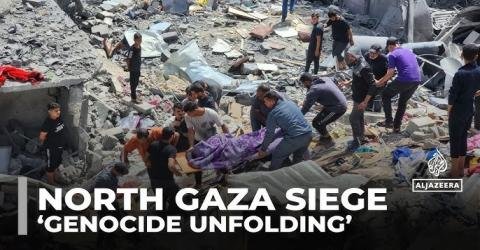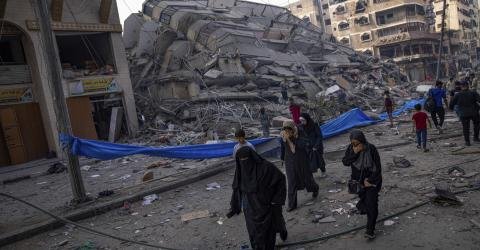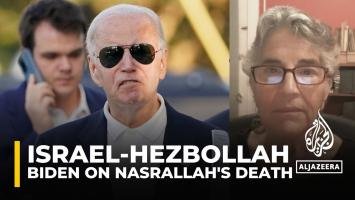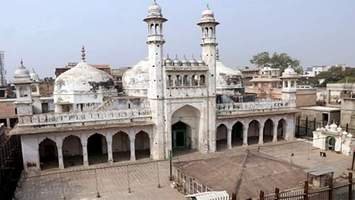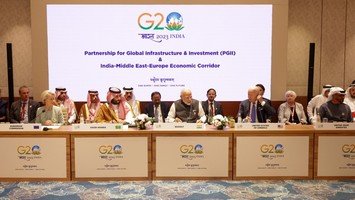Varanasi: Worship started from today in Vyas basement located in Gyanvapi Mosque
Thursday, February 1, 2024
Implementing the decision given on Wednesday, 31 January 2024 by the District Court of Varanasi in the Indian state of Uttar Pradesh, the district administration started worship in the Vyas basement located in the Gyanvapi Masjid complex on the morning of Thursday, 1 February 2024.
Varanasi District Magistrate S Rajalingam gave this information to journalists in the early hours of Thursday, February 1, 2024.
S Rajalingam said, "The court order given to me has been complied with."
Whereas in response to a question asked about the barricading in front of Vyas basement located in Gyanvapi campus, S. Rajalingam again said that 'the court order was complied with'.
When journalists asked S. Rajalingam whether the puja was conducted, S. Rajalingam again gave the same answer, "Whatever the court has said was complied with."
Call it a coincidence or a pre-planned plan that 38 years ago today (Thursday, 1 February 2024) in 1986, the lock of Babri Masjid in Ayodhya was opened on 1 February.
While talking to ANI on Thursday, February 1, 2024, Sohan Lal Arya, a plaintiff and lawyer in this case, has confirmed that a path to the Vyas basement has been made, but the people taking darshan are not allowed to go there right now.
Sohan Lal Arya said, "Today (Thursday, 1 February 2024) seems to be a very proud moment. We are thrilled from every corner. The decision of the District Judge yesterday (Wednesday, 31 January 2024) seemed unprecedented. Right now all the The arrangements are complete but right now the public is not being allowed to have darshan there (Vyas's basement). We were waiting for this moment for 40 years."
According to Sohan Lal Arya, "Now a separate door has been made from the side of Nandi (to the north) to go towards Baba's basement. There were three policemen there. We asked them to allow us to have darshan. On this they Said that right now there is no right for darshan and worship, all the devotees will be allowed to go there as soon as it is available."
Earlier, showing great haste, Varanasi DM S Rajalingam along with other top officials of police and administration went inside from gate number four of Kashi Corridor at around 11 pm on Wednesday, January 31, 2024. From there there is a way to go inside the Gyanvapi complex.
At the same time, many laborers reached there to make a path in front of the statue of Nandi located in the Vishwanath temple complex by cutting some part of the barricade around the Gyanvapi complex.
A large number of police personnel were also deployed there. Varanasi Police Commissioner Ashok Jain said that all arrangements for law and order were made.
Almost three hours later, at 2 am on Thursday, February 1, 2024, DM S Rajalingam came out of the premises and told the media, "The court order has been complied with."
Varanasi district court gave the order on Wednesday, January 31, 2024
On Wednesday, January 31, 2024, the District Court of Varanasi had given the Hindu side the right to worship in the Vyas basement of the Gyanvapi Mosque.
The District Court of Varanasi had written in its order, "The District Magistrate, Varanasi/Receiver is directed to hand over the basement situated on the south side of the building situated at Settlement Plot No. 9130, Thana Chowk, District Varanasi, which is the suit property. The plaintiff and the Kashi Vishwanath Trust Board should get the priest to start worshiping and worshiping the idols located in the basement."
The court had given the administration 7 days to implement this order. But the district administration acted very quickly and followed the court's order within 12 hours.
If only the district administrations of the states of India (especially the district administration of Varanasi) had shown so much promptness in the development work, then every district of India would have been a developed district and India would have been a developed country. India is seriously struggling with the problems of extreme poverty, hunger and unemployment. But the legislatures and executives of India and its states do not pay attention to this. Indian politics has become centered on religious issues, religious faith and religious sentiments. The consequences of which most of the people of India are facing in the form of problems like severe poverty, hunger and unemployment.
However, the Gyanvapi Masjid side has announced to challenge the decision of the Varanasi District Court in the Allahabad High Court.
It is certain that this decision of the Varanasi District Court will increase communal tension between Hindus and Muslims in India. Just as India has been burning in the fire of communalism for decades after the lock of Babri Masjid was opened by the court's decision. The fire of communalism in India has not yet been extinguished and this decision of the Varanasi District Court plunged India into the fire of communalism for decades. What will happen in the future? No one knows, but it is certain that it will have a bad impact on future India. For the future of India to be good, it is necessary that the legislature, executive and judiciary of India should refrain from taking any controversial work or decision without thinking or under any agenda which may lead to internal unrest in India or threaten the future of India.
Before us is the example of the decision given by the Manipur High Court, due to which Manipur has been a victim of large-scale violence between Meitei (Hindus, followers of Sanatan Dharma) and Kuki tribals (Christians) for the last several months. Lakhs of people were displaced and hundreds were killed due to this violence. Many women were raped and many women were paraded naked. India faced widespread criticism and opposition due to Manipur violence at the international level.


